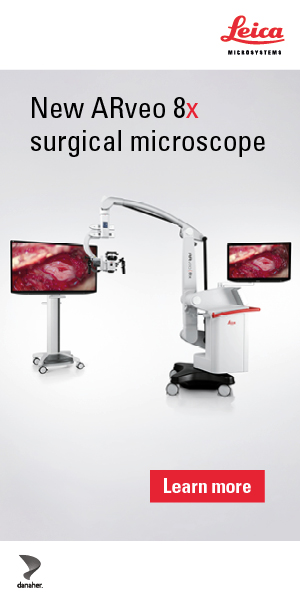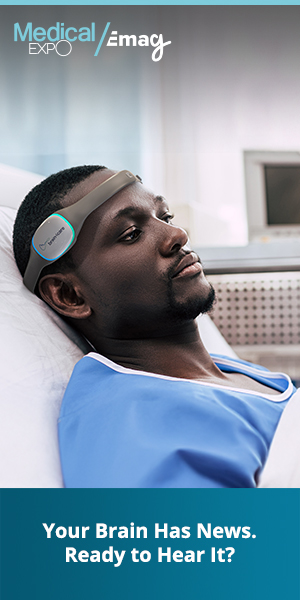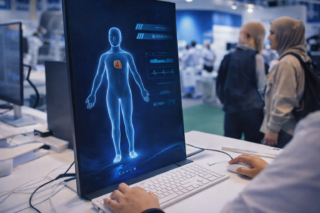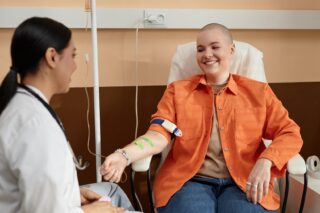Two months before Theos Health launches its app Sideline Ortho, we invite Nate Macleitch and Sanat Dixit to discuss how AI-powered triage improves MSK care for athletes.
This article was written by Nate Macleitch, CEO of QuickBlox, and Sanat Dixit, MD, MBA, Neurosurgeon, Founder and CEO of Theos Health.
Mild traumatic brain injury, synonymous with concussion, affects more than 30–50 million people each year globally. Severe knee injuries, concussions, or other musculoskeletal (MSK) injuries impact the quality of life when not treated in a timely manner. It also takes an emotional toll, particularly for adolescents. A pervasive fear of re-injury can lead to social isolation. Motivation and support facilitate the desire to return to sports.
These patients need access to proper care, but whether they get it can depend largely on their insurance status and race. In Louisiana and Florida in 2023, just 18% and 9.8% of clinics treated Medicaid patients, respectively. In Medicaid expansion states, 60% of medical directors reported geographic barriers (long distances or travel time) as a contributing factor to poor access.
Motivating physicians to treat Medicaid patients is an ongoing systemic issue. However, reducing unnecessary transfers and excessive travel is an immediate solution. QuickBlox and Theos Health work together to provide a support system that eliminates triage delays, mismatched referrals, and frightening costs of care. With automated support, athletes, regardless of level or location, can receive effective treatment plans and expert guidance for optimal recovery via automated triage and video consultations.
Our goal is to ensure proper injury care, particularly for schools and sports clubs in underfunded or underserved areas with higher access barriers.
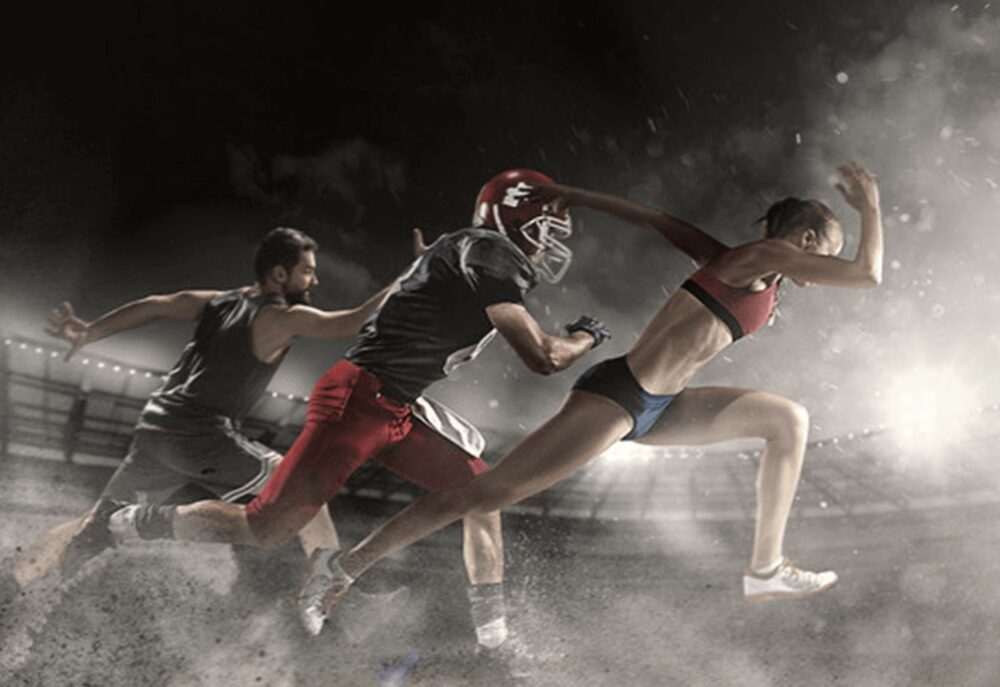

Streamline Patient Intake and Triage
Approximately 1.71 billion people have MSK conditions worldwide. When treatment is delayed, it can lead to higher treatment costs and potential permanent damage. Lower back pain, for example, is the leading cause of disability worldwide. Yet, nearly 40% of Americans reported postponing treatment due to medical costs in 2022.
Smart intake forms offer U.S. patients a free service that guides them through key questions to assess the injury, clarifying whether it’s a minor issue or something requiring immediate medical attention. With accurate information regarding the potential damage, injured athletes can make smarter, informed decisions about whether to move forward with treatment and prevent significant costs further down the line.
Theos Health’s app, Sideline Ortho (launching in August 2025), offers a mobile app for patients to report injuries and receive AI-assisted triage. Intake forms include customized fields covering injury details, pain level, and the option to upload photos and videos.
With this information, supported by QuickBlox’s HIPAA-compliant chatbot assistant (launched in 2024), the model analyzes inputs and automates triage. It compares uploaded data to a curated set of clinical patterns to suggest likely injury types and creates a patient profile for the best-matched medical practitioner to review. The assisted triage helps ensure patients are connected with the right clinician and arrive at consultations with the most relevant information already gathered.
Similar apps have seen success in the UK. In 2024, the NHS’s Flok Health platform trialed over 1,000 patients, with 97% receiving automated triage outcomes, and 92% immediately approved for AI physiotherapy and given same-day appointments. Over 80% of participants reported symptom improvement, and 57% preferred the AI experience over traditional consultations.
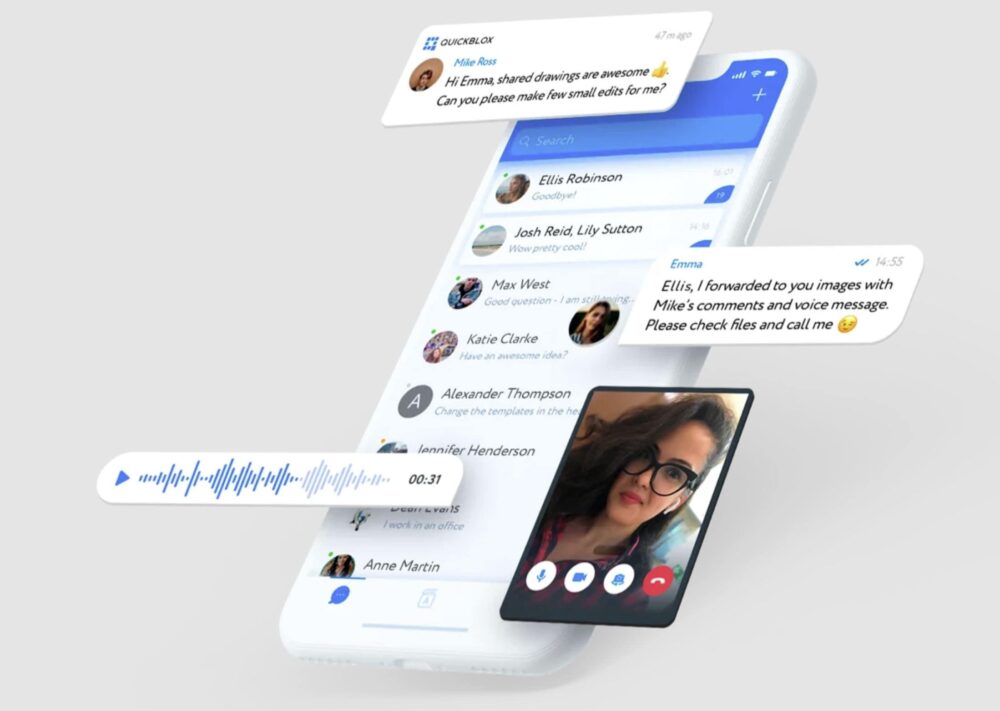
QuickBlox’s AI chatbot assistant makes it simple to generate AI-powered chatbots directly from the QuickBlox dashboard.
Specialist matching
Even if athletes don’t delay triage, slow referral chains can prevent immediate care. Automating this process can facilitate same-day consultations.
A 2025 study developed a machine learning pipeline to prioritize musculoskeletal referrals by identifying conditions like rheumatoid arthritis, osteoarthritis, and fibromyalgia. Analyzing 8,044 referral letters from 5,728 patients across 12 clinics, the AI system outperformed manual referral processes in prioritizing urgent cases. The benefits include the potential to enhance care efficiency and reduce clinician workload.
With QuickBlox white-label video conferencing software (launched in 2021), Sideline Ortho will connect users directly to experienced trainers and MSK healthcare providers for live consultations.
There are multiple entry points for athletes looking to triage their injury and connect with the medical team, including website widgets, chatbots, and appointment booking pages. Sideline Ortho offers a patient dashboard with live queues, scheduled appointments, and patient management services.
Behind the scenes, AI-assisted algorithms match injury profiles with MSK providers based on geography, availability, and clinical fit. The tool performs classification tasks based on visual and textual inputs. It is most useful in identifying common soft-tissue injuries, joint swelling, visible inflammation, and basic movement limitations. Its outputs are probabilistic and transparently labeled with confidence intervals. All results are reviewed by a physician before any clinical recommendation is made.
Looking ahead
This first release of Sideline Ortho will roll out in the coming months to a pilot group of athletes and sports clinics. Based on early feedback and clinical validation, we plan to expand the platform in several directions:
- More advanced diagnostic assistance using motion analysis from video uploads.
- Integration of electronic health record (EHR) systems for full clinical context.
- Longitudinal tracking of rehabilitation progress.
- Asynchronous video reviews and second opinions.
We’re deliberately starting with a focused scope, which is to help injured athletes get to the right specialist, with the right information, as fast as possible. The AI does not offer definitive diagnoses, nor does it manage emergency cases or acute trauma. It is designed to support clinicians in triaging MSK injuries, leading to quicker diagnoses and treatments. We aim to reduce treatment wait times by an average of eight weeks.
If you are interested in learning more about Sideline Ortho or would like to use these services for your sports patients, click here to get notified when we launch.


